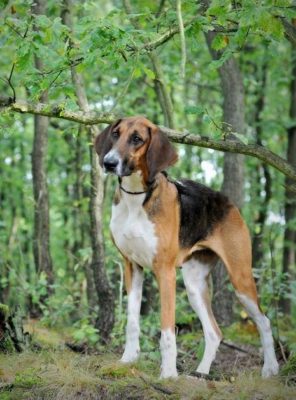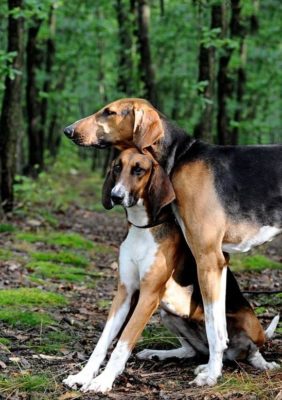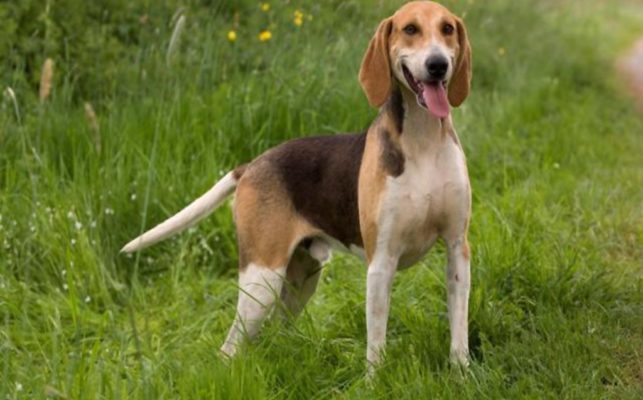Poitevin
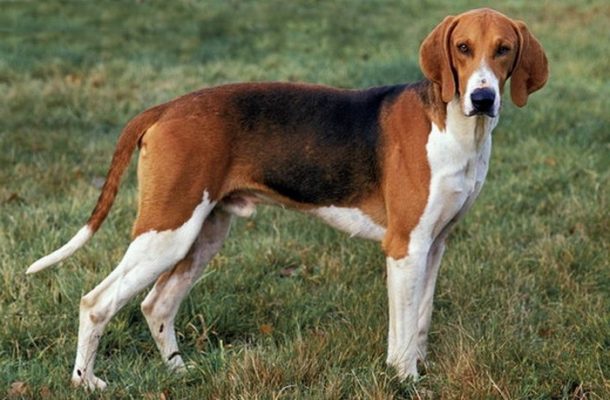
If you had to describe Poitevin in one word, it would be “aloof”. It is not a breed that seeks human company. Although loyal to its immediate owner, it has little interest in people and prefers other dogs’ company.
Table of Contents
Breed Information
| Another Name | Poitevin Hound, Chien du Haut-Poitou |
| Origin | France |
| Height | Males 62-72 cm Females 60-70 cm |
| Weight | Males 20-32 kg Females 20-30 kg |
| Fur | Short, smooth, with a dense undercoat |
| Color | Brown with black and white |
| Lifespan | 10-12 years |
| FCI Classification | Scent hounds and related breeds |
| Group | Dogs for hunting, dogs for kids |
| Price | From $800 |
Breed Photos
Origin History
In the 1690s, the Marquis de Lairr decided that there was no single breed of dog that had all the perfect dog qualities. Apparently, over time the Marquis got into mixing breeds to breed the exceptional breed he wanted.
The Marquis’s wish list included a dog with an excellent sense of smell, inexhaustible energy, and physical strength to fight wolves and bring down deer. Poitevin was created by breeding French as well as Irish hounds.
The resulting breed became popular in the local environs of France but never became more widely known. It seemed that the breed might not survive even after a series of catastrophic events that hit their numbers hard. Nevertheless, Poitevin survived the French Revolution, a serious outbreak of rabies, and then World War II, and insufficient numbers that enthusiasts could revive the breed.
To prevent health problems, the English Foxhound line was introduced into the breed to strengthen its line. As the number of Poitevin gradually increased, breeders began to select dogs with a more typical appearance to bring the breed back to its origins.
Appearance
Poitevin is a “kaleidoscope” of looks from several dogs. He bears a resemblance to other breeds. Whether you think of him as similar to an English Foxhound or a stocky greyhound, some traits remain original, such as his long nose and prominent legs, muscular body, and whip-like tail. His deep chest is designed for running, and his long hind legs are the driving force that provides his impressive stamina.
The Poitevin has an excellent short coat, and its coloring consists of three colors: white, brown, and black. The dog’s body is brown, the limbs are white (including the tip of the tail), and the saddle area is black. Males are 62 to 72 cm tall, while females are 60 to 70 cm tall. The average weight is 20 to 30 kg.
Character
If you had to describe Poitevin in one word, it would be “aloof. It is not a breed that seeks human company. Although loyal to its immediate owner, it has little interest in people and prefers other dogs’ company.
However, he also has a strong hunting instinct, so any canine companions must be his size or larger, or they risk being mistaken for prey. Their ability to hunt and take down boars, wolves, or deer means that they tend to make their own decisions. Their strong-willed nature borders on stubbornness and makes this breed a real challenge. Poitevin does not like to be left alone. He never expresses his displeasure by howling or barking.
Care
The only thing that is easy with Poitevin is taking care of his coat. He has a short coat, so it doesn’t tangle. Brushing twice a week with a bristle brush or grooming glove will help keep the coat in excellent condition. Bathe this breed with caution; as you may wash away, it’s a waterproof protective coating.
As with any active dog, check him at the end of each day for debris lodged in his ears or paws. Be especially vigilant for ticks or other parasites that attach to him as he roams the countryside and immediately removes the parasites to prevent infection.
Training
Training an animal with a strong hunting instinct will always be a challenge. A Poitevin needs an experienced handler who trains, rewards, and sets clear boundaries.
It is also wise to give Poitevin plenty of mental exercise and regular obedience training, so he has time to develop his intelligence. Given Poitevin’s potential strength and energy, it is important to start the socialization process as early as possible, so he is not anxious or afraid to face new people and situations.
Common Diseases
Poitevin is a healthy and hardy dog, so any health problems are more likely to be due to outside situations. For example, your pet can get parasites, ticks, or fleas, leading to infectious diseases. Your dog should also be checked for worms.
Nutrition
This large dog needs 3-4 cups of quality dry food a day. Divide this amount into two main meals.
Poitevin nutrition should be balanced and rich in vitamins. Keep in mind that the number of meals may increase depending on your dog’s activity level.
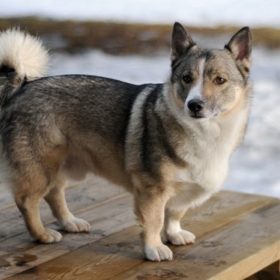 Swedish Vallhund
Swedish Vallhund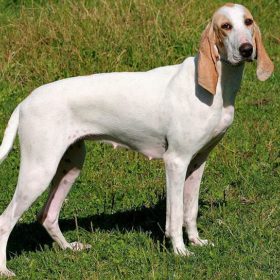 Porcelaine
Porcelaine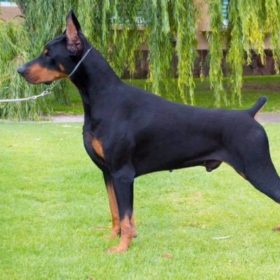 Dobermann
Dobermann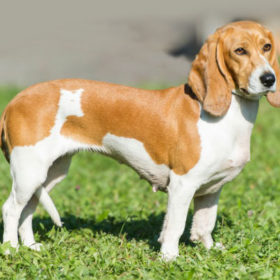 Small Schwyz Hound
Small Schwyz Hound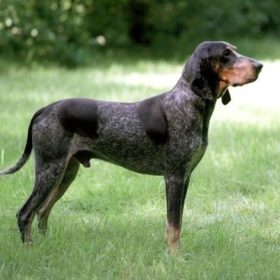 Lucerne Hound
Lucerne Hound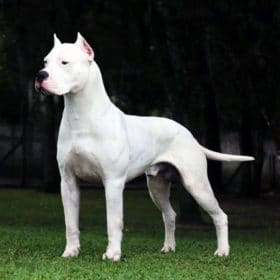 Dogo Argentino
Dogo Argentino